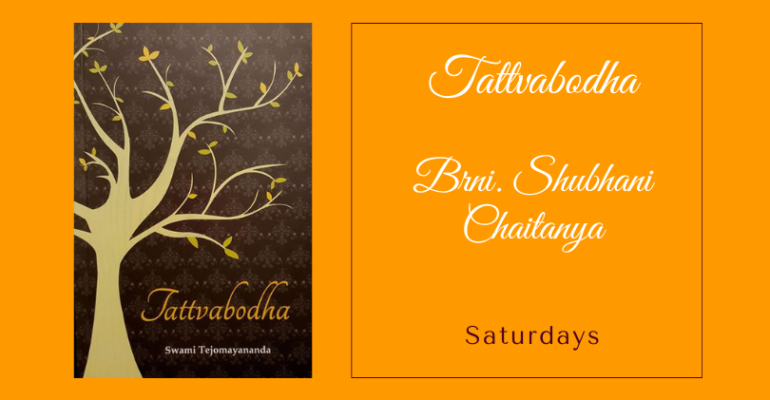Podcast on Spotify
III f. Samādhāna or single-pointedness of mind
समाधानं किम् ?
चित्तैकाग्रता ।
samādhānaṃ kim ? cittaikāgratā.
The last of the sixfold inner wealth qualities of a seeker is samādhāna, which refers to single-pointedness of mind, also known as focus or concentration. The literal meaning of samādhāna is samyak ādhāna, to place the mind very well, on the Self. Samādhāna is required since it requires significant self-effort to bring focus to the mind.
What are the states of mind?
- Kṣipta or Distracted: A rājasic state where distraction causes nothing concrete to happen
- Mūḍha or Stupor: A tamasic state where the mind is tired or sleepy
- Vikṣipta or Occasionally distracted: The mind is focused but occasionally gets distracted
- Ekāgra or Focused: Both the mind and body are in the same place at the same time, there is Mind Body Alignment (MBA)
- Niruddha or Absorbed: The mind is completely absorbed into its target, also known as samādhi
States 1-3 are to be transcended since they do not contribute to our spiritual evolution.
Why is focus important?
- Saves time and energy – a focused mind performs more efficiently than an unfocused mind
- Generates peak performance
- Conserves resources since it is easy to waste resources when the mind is not focused
Techniques to help us focus
- Mantra Japa and Chanting: Repeating a mantra trains us to keep one thought in the mind, and helps us to focus
- Extra Curricular Activities: Sports, music and arts – all these activities help children learn to focus in a relaxed atmosphere
- Avoiding multiple goals: By aligning to a single goal, which could be realization of the truth or self improvement, we can reduce distractions caused by multiple goals, and improve our focus
- Mumukṣutvaṃ or intense desire for liberation
मुमुक्षुत्वं किम् ?
मोक्षो मे भूयाद् इति इच्छा ।
mumukṣutvaṃ kim ? mokṣo me bhūyād iti icchā.
The last of the four qualities of a seeker is mumukṣutvaṃ , which refers to the intense desire for liberation. It is translated as: may liberation arise in me, may I attain liberation.
Levels of intensity of desire for liberation
- Manda or Dull: We feel that liberation is not required now, that it can happen next time
- Madhyama or Medium: We feel that we want it some time, but it’s not urgent
- Tīvra: We want liberation here and now. Our desire for liberation is as intense as the desire for air from someone who is drowning
One common misconception is that we have to give up our families and careers in order to pursue liberation. In fact, the opposite is true – we can use everything we encounter in our lives as contributing to our spiritual growth. Only through introspection of our lives will we realize that we are bound, and strive for liberation.
Here, the section on the four qualities of a seeker concludes.

